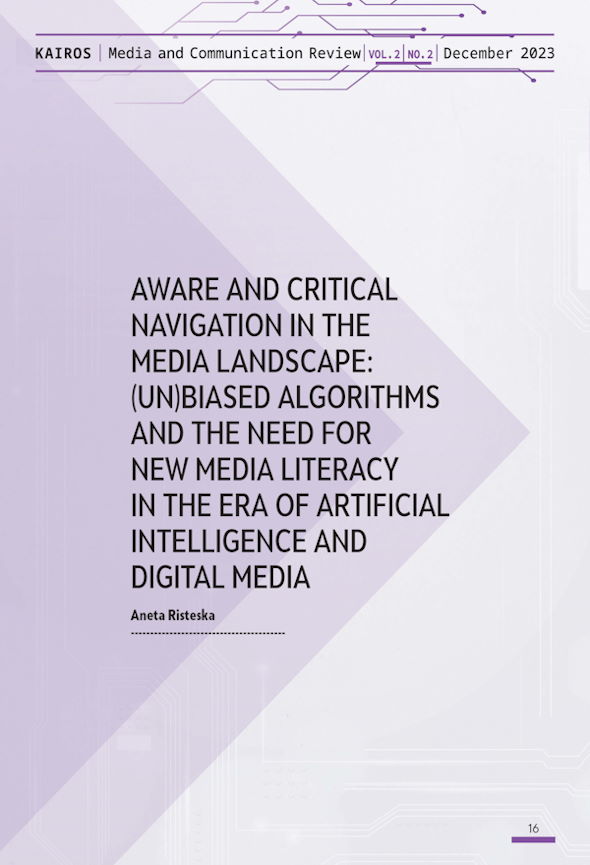
Aware and Critical Navigation in the Media Landscape: (Un)biased Algorithms and the Need for New Media Literacy in the Era of Artificial Intelligence and Digital Media
Volume 2 | No 2 | December 2023
Aneta Risteska
Association for Research, Communications and Development “Public”UDC: 004.81:159.953.5]:316.774-028.27
Abstract
As technology advances rapidly, media literacy education plays a crucial role in supplying individuals with the skills and knowledge to navigate the complex media landscape. The article examines the ethical implications of AI algorithms highlighting the importance of critical awareness among users. AI-driven recommendation systems have considerable influence over individuals' information consumption and worldview, which requires media literacy education to foster a deep understanding of biases, limitations and potential risks associated with these algorithms. This paper points to the need for ethical behaviour to govern AI algorithms, ensuring transparency, accountability and fairness in content curation. Additionally, the article brings examples that indicate how algorithms work and what consequences they can leave in our social life and actions if we do not create them according to certain ethical values, or if we consume their messages without critical awareness. New media literacy education should empower individuals to make informed decisions about their privacy and develop a critical stance toward data collection practices. Concepts such as informed consent, data anonymity, and the implications of targeted advertising should be addressed in media literacy education. Furthermore, the paper emphasizes the responsibilities of media literacy educators themselves. Teachers and institutions must ensure that media literacy programs promote inclusivity, diversity, and a global vision. By incorporating ethical frameworks into the curriculum, educators can cultivate responsible digital citizenship and encourage critical thinking about the social impact of AI and digital media. Media literacy education in the context of AI and digital media must address the ethical dimensions inherent in these technologies. By equipping individuals with the necessary tools to critically analyse algorithms, navigate data privacy concerns, and foster responsible digital citizenship, media literacy education can facilitate an informed and ethical engagement with AI and digital media.
Keywords: Ethical aspects, algorithms, human rights, artificial intelligence, new media literacy education, digital media

